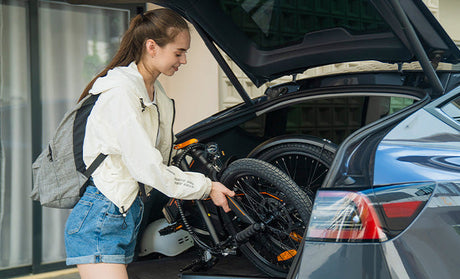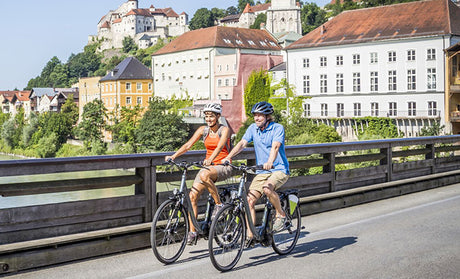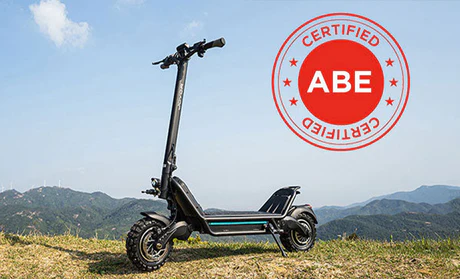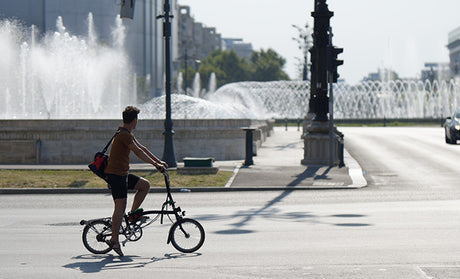In recent years, Electric Bikes have become very popular in Europe, providing people with a convenient and environmentally friendly mode of transportation. However, the rise of non-compliant or unrestricted electric bikes (often modified to exceed legal speed limits or power output) has prompted a significant increase in the number of local electric bikes inspections by police in various countries. Inspections of non-compliant or unrestricted electric bikes will only increase, and the requirements for legal use on the road will only become more stringent.

Germany
In Germany, e-bikes are categorized under strict regulations based on their power output and maximum speed. According to the German Road Traffic Act (StVO), e-bikes are classified as Pedelecs if their motor only assists while pedaling and cuts off at speeds above 25 km/h. S-Pedelecs, which can reach speeds of up to 45 km/h, are treated similarly to mopeds, requiring riders to have insurance, a valid driver's license, and a registration plate.
German Road Traffic Regulations(StVO) Download
Overview of E-Bike Regulations in Germany (ADFC)
Recently, German police have intensified inspections on e-bikes that appear to be modified or are suspected of being non-compliant with these regulations. The checks often involve roadside inspections and targeted operations in areas with high e-bike usage. Riders found to be using illegal e-bikes face fines, and their bikes can be confiscated. Authorities emphasize that these measures are not only to enforce the law but also to enhance road safety and reduce accidents caused by high-speed e-bikes.

Netherlands
The Netherlands is well-known for its cycling culture and has seen a significant increase in the use of e-bikes in recent years. Dutch regulations require that e-bikes have a maximum speed of no more than 25 km/h and a maximum power output of no more than 250 watts. E-bikes that can reach speeds of up to 45 km/h are classified separately and require registration, insurance and helmets.
The Netherlands has now deployed mobile test rigs to identify e-bikes that are capable of travelling at speeds exceeding the maximum permitted speed. The Dutch police have been actively conducting inspections to ensure compliance with these regulations. Inspections are usually carried out in urban areas and near popular cycling routes. The Dutch government has also launched a campaign to educate the public about the risks of non-compliant e-bikes. Riders found using illegal e-bikes may face fines and their bikes may be confiscated. Authorities stress that these measures are intended to protect the well-being of all road users and promote a safe cycling environment.

France
In France, e-bike regulations are governed by the Code de la Route, which stipulates that e-bikes must have a maximum power output of 250 watts and should not exceed 25 km/h. Any e-bike surpassing these limits is considered a motorized vehicle and is subject to more stringent regulations, including mandatory insurance and helmet requirements.
French Road Code Overview on E-Bikes
French authorities have also ramped up their efforts to curb the use of non-compliant e-bikes. Police operations have been reported in major cities like Paris, Lyon, and Marseille, where officers conduct spot checks and technical inspections of e-bikes. Riders found violating the regulations can face penalties, including fines of up to €1,500, confiscation of the e-bike, and potential legal action. The French government aims to maintain a balance between promoting sustainable transportation and ensuring public safety.
United Kingdom
In the UK, e-bikes are regulated under the Electrically Assisted Pedal Cycles (EAPC) Regulations. To be classified as an EAPC, the e-bike must have a motor power of no more than 250 watts and should not assist the rider at speeds above 15.5 mph (25 km/h). Any e-bike exceeding these limits is considered a motor vehicle and requires registration, insurance, and a license.
Guide to E-Bikes and UK Law
The UK police have been conducting targeted operations to identify and penalize riders of non-compliant e-bikes. These checks often involve collaboration between local police forces and national road safety organizations. Riders found to be using illegal e-bikes face fines, penalty points on their driving licenses, and potential prosecution. The UK Government emphasizes that enforcing these regulations is crucial to prevent accidents and ensure the safety of all road users.

End
As the popularity of e-bikes continues to grow across Europe, the increased police checks on non-compliant or unrestricted electric bikes reflect the need to balance innovation with safety. While e-bikes offer a sustainable and efficient mode of transportation, ensuring compliance with regulations is essential to protect riders and the public.








